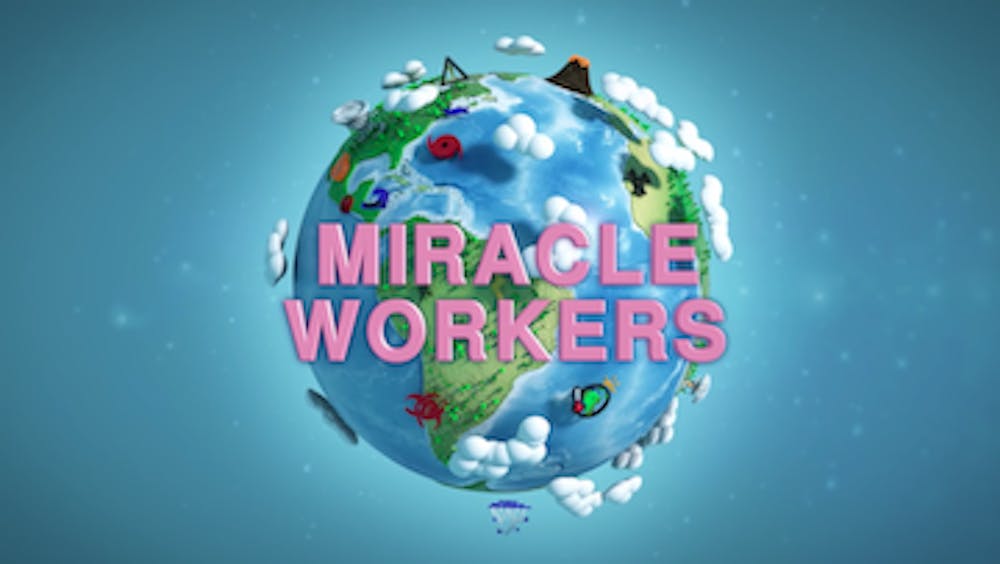It can be sad seeing a good thing come to an end; and when it comes to entertainment, this couldn’t be more true. Getting swept up into a story and witnessing characters grow and eventually having to say goodbye is often a bittersweet experience. Yet in the case of TBS’ “Miracle Workers,” a comedy anthology series, each season finale offers a new beginning.
With its first two seasons based on writer Simon Rich’s work, each season of “Miracle Workers” offers up a new story while keeping many of the same actors such as Daniel Radcliffe, Geraldine Viswanathan and Steve Buscemi. Season one of the show centers around angels Craig (Radcliffe) and Eliza (Viswanathan) determined to stop the apocalypse by convincing God (Buscemi) that Earth is worth keeping around. This season of the show is standard for the most part; while the show’s writing is no doubt satirical with a quirkiness that matches its premise, its race-against-the-clock setup leaves season one of the show primarily story-driven.
In comparison, season two of the show, “Miracle Workers: Dark Ages,” is a wildcard that challenges the viewer’s expectations: set in a satirical and anachronistic medieval setting (think “Ella Enchanted'' or “A Knight’s Tale”), the show is carried by its cast of chaotic characters and joke after joke. While each episode of the first season builds up to the season finale, “Miracle Workers: Dark Ages” has episodes focused on taking goats to court and going to ye olde musical festivals. Rather than focusing on a specific overarching plot, the series ultimately centers on the progression of its characters in a way that ramps up the show’s comedy and leads to the occasional heartwarming moment here and there. In a way, while the show’s demeanor becomes all the more sillier in this second season, it is more than apparent that the returning cast manages to hit their stride and shine, potentially even more than they did in the first season.
“Miracle Workers” anthology-miniseries format allows the show to take creative risks and tell satisfying stories, something that not every television series does in our modern landscape.
Although “Miracle Workers” is more of a guilty pleasure than an award-worthy show, its brevity and willingness to change makes it stand out in comparison to other television shows today.
Between the pandemic throwing a wrench into, well, everything, and finicky executives, it seems that half the shows out there nowadays are waiting to get canceled. If these stories were self-contained, that would be one thing, but oftentimes a series will be cut short without warning to both the audience and the creators, leaving all-too-many shows ending on a high-stakes season finale that will never be resolved. In a way, this makes “Miracle Workers” seem like a metaphorical “safe investment” when it comes to watching shows. Although it would be a shame if this show were canceled and its fantastic cast disbanded, any cancellation would not have an impact on the show’s story.
While a show like “Miracle Workers” may not be guaranteed to be great season after season, its anthology format may be a good way to prevent seasonal rot. Seasonal rot, otherwise known as a decline of a show over time, can be commonplace in long-lasting series, whether it be writers running out of story ideas or characters becoming caricatures of themselves. With a show like “Miracle Workers,” however, it is hard for characters to become stale if they are constantly changing and thrown into new situations.
“Miracle Workers” and its commitment to short-but-energetic seasons leaves it feeling refreshing amidst other media out there. It is quality-over-quantity entertainment where you don’t need to binge-watch hours upon hours of other content to understand the show and its characters. All it is, is simple and creative fun.
Photo courtesy of TBS.














